
Our best reissues and retrospectives round-up returns with revolutionary Bronx Latin funk, avant-garde fusion, cult-fave live recordings, and more.
Takuya Kuroda
Rising Son
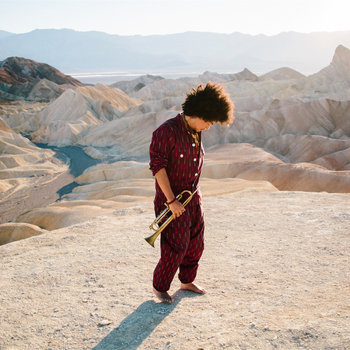





2 x Vinyl LP




Takuya Kuroda hails from Kobe, Japan, but has been a New Yorker since the mid-2000s, when he made the move to study jazz and contemporary music at The New School. Kuroda has since moved through the city as a recording artist and musician for hire, notably playing in DJ Premier’s touring group, The Badder Band. First released 10 years ago, Rising Son is Kuroda’s debut album and displays his modern, genre-fusing take on jazz. There are prominent hip-hop undertones as well, with the light-touch funk of tunes like “Rising Son” and “Piri Piri” evoking a good J Dilla beat. Elsewhere, “Afro Blues” showcases brass performances reminiscent of Fela Kuti, as well as a fresh take on Roy Ayers’s omnipresent classic “Everybody Loves the Sunshine.” Kurodo and his band spend a near two-and-a-half minutes alchemizing a nifty groove before vocalist José James (also the album’s producer) enters with that familiar, “My life, my life, my life, my life,” the melody simmering to perfection.
Dan Del Santo
World Beat


Dan Del Santo is said to be the originator of the term “world beat”—it was his show of the same name on Austin’s KUT radio station that came to describe the trend of 1980s popular artists such as David Byrne, Peter Gabriel, and Paul Simon incorporating global sounds into Western rock and pop. Two Del Santo LPs have recently been reissued: 1981’s That’s Life in the Big City and 1983’s World Beat, but it’s the latter, as the title suggests, that feels like Del Santo’s definitive attempt to add to the genre’s canon. Using both synthesized and live drums and horns, the rhythm sections span Afrobeat, Latin pop, and Middle Eastern music. Del Santo is a charismatic and irreverent vocalist too: Rapping on “Why Don’t You Open Your Eyes,” the native New Yorker displays his ear for old school hip-hop, and on “It Don’t Matter Where You Run,” he sings almost with the voice of a Halloween Dracula, repeating, “It don’t matter where you run/ You can’t escape the Babylon.” To Del Santo, it’s paradise.
Ghetto Brothers
Power-Fuerza
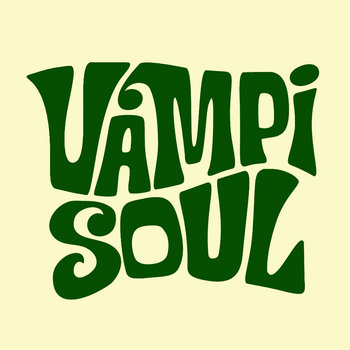


Vinyl LP

The Ghetto Brothers were forged in the red fire of South Bronx socialism. Formed by the Melendez family—Benjy, Robert, and Victor—who came to New York in the 1950s from Puerto Rico, the band followed the revolutionary group the Young Lords into the Puerto Rico independence movement on the same streets that birthed hip-hop shortly thereafter. (Berets inspired by Che Guevara and Fidel Castro were their favored headwear.) Power-Fuerza was recorded in the summer of 1972 and includes “Viva La Puerto Rico Libre,” an exuberant funk anthem steeped in Puerto Rican pride. Much of the album isn’t actually political. The Ghetto Brothers show their romantic side on the doo-wop-inspired “There is Something in My Heart,” with laidback guitar strums and pretty harmonies that evoke hazy summer evenings.
Agustin Pereyra Lucena
Agustín Pereyra Lucena
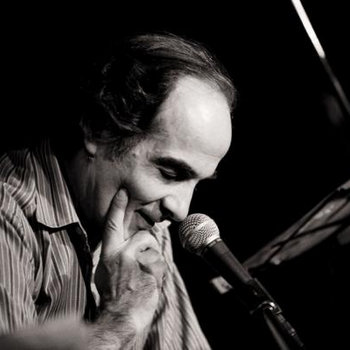



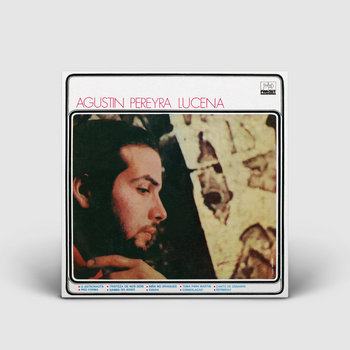



Vinyl LP, Compact Disc (CD)




Far Out Recordings previously reissued Agustin Pereyra Lucena Quartet’s La Rana, but this easy-breezy odyssey by the Argentinian guitarist—self-titled and credited to him as a solo artist—may serve as an even better introduction. Agustín Pereyra Lucena, released in 1970, showcases the artist’s nimble bossa nova play, which is wisely accompanied by only delicate additional furnishings: a two-man rhythm section that mostly settles into the background and singer Helena Uriburu’s ba-ba-bah and dum-dum-dum vocals on standouts such as “Tristeza De Nos Doi.”
Sonic Youth
Walls Have Ears
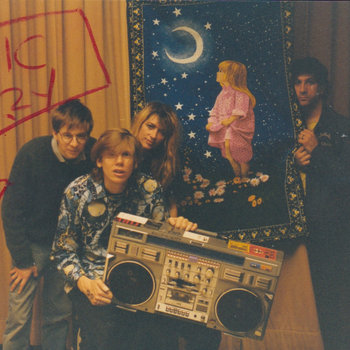
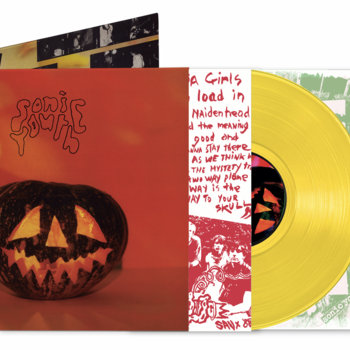






2 x Vinyl LP, Cassette, Compact Disc (CD), Vinyl




“Shut your fucking face,” says Claude Bessy, the French jack-of-all-trades-punk, simmering down an audience so he can deliver a spiel on how Sonic Youth’s decision to put a Xeroxed, topless model on the cover of the “Flower” 12-inch had ticked off Rough Trade. So begins Walls Have Ears. Most labels would have nixed this preamble; had these live performances been recorded for an official release, maybe it would have been. But the album is a fabled bootleg that gathers recordings from a series of UK shows Sonic Youth performed in 1985. It was made available the following year on double vinyl without the consent of the band. Now, almost four decades later, Walls Have Ears finally enters their approved canon.
As you might expect from a bootleg, the aesthetics are raw and grubby; the crowd noise is low, rendering them distant to the point where the band sounds like they’re playing to the audience from behind a wall of dirt. They work through material from their first two albums—the April 1985 tracks feature drummer Bob Bert, while the later recordings (ordered first on the tracklisting) present his replacement Steve Shelley, highlighting the smooth transition. “Brother James” is bolstered by the vicious thud of Shelley’s play, while Kim Gordon’s full-throated, more foregrounded performance crushes the studio version. While “Blood On Brighton Beach” (a rebranded “Making the Nature Scene”) bottles the throbbing energy of Gordon’s bass and Thurst0n Moore and Lee Ranaldo’s guitars. The album’s scuzzy nature makes Walls Have Ears unsuitable as a starting point for new listeners, but by receiving an official release, it fills out a corner of the youthful Youth’s legacy.
Majoie Hajary
La Passion Selon Judas




Vinyl LP


La Passion Selon Judas (The Passion According to Judas) is a seminal work by Majoie Hajary, a Surinamese pianist and composer who pitched up in Amsterdam as a teenager to study at the city’s Conservatoire of Music. Hajary went on to study with Nadia Boulanger in Paris, married the nephew of the famous Roland Garros (also named Roland Garros), and became a sought-after concert pianist. It was in France in 1970, the year she turned 49, that Hajary laid down this wondrous, avant-garde fusion of jazz, funk, and religious music. Red herrings are everywhere—see how “Prologue” begins as a misty spiritual jazz composition before the funky rhythm section emerges. A guitar and piano add a light rock ‘n’ roll lilt to the Christian hymn in “Notre Pere,” while finale “Le Verbe” is a dusty Spaghetti Western-esque number, punctuating this daringly eclectic set.
Austin Peralta
Endless Planets







2 x Vinyl LP




Billed as Brainfeeder’s first incursion into jazz—with Thundercat and Kamasi Washington following closely behind—Austin Peralta’s Endless Planets was first released in 2011 and fits comfortably in the Los Angeles jazz and beat scenes that often coalesced around Lincoln Heights’s club night, Low End Theory. But while many of those beatniks loved their electronic toys, Peralta was a disciple of Frédéric Chopin and Cole Porter: a prodigious Santa Monica pianist who, as a five-year-old boy, was stopped in his tracks the first time he heard Mozart. Peralta tragically died just one year after the release of Endless Planets at just 22 years old. As the artist himself was said to have been particularly happy with Endless Planets—his first two albums, for Sony Japan, failed to receive releases in the United States—it shoulders much of his legacy. On “The Underwater Mountain Odyssey,” Peralta’s piano play shares space with the storms of brass, both peacefully coexisting side by side. The prominent bassline on “Algiers” moves to the beat appropriate for the city’s revolutionary history. And as the ambitiously titled “Ode To Love” draws to a close, Peralta’s keys evoke a sense of sadness and tragedy under the broad, sweeping horn play, the antithesis of Porter’s happier depictions. This reissue of the album features four BBC session cuts, including a version of “DMT Song,” which Peralta co-wrote for Flying Lotus’s album Until the Quiet Comes, with Jason Yarde’s alto sax pulling the composition into a more traditional jazz sound. The inclusion of these recordings bolstered the legacy of a career cut heartbreakingly short.
Various Artists
Merengue Típico: Nueva Generación!







Vinyl LP, Cassette, Compact Disc (CD)




Merengue is a form of music and dance that emerged in the Dominican Republic in the 19th century. Military dictator Rafael Trujillo was a fan—in 1936, he declared that traditional Cibao merengue would be the national music and dance. But Merengue Típico: Nueva Generación! draws from the 1960s and ’70s, after the assassination of Trujillo, allowing curator Xavier Daive (aka Funky Bompa) to frame a transformative, cathartic era for the genre and nation. Perhaps the most crucial aspect of the Merengue sound is the accordion, which is responsible for its distinct, brisk rhythm; the grooves are rounded out by instruments such as the güira and the tambora, as well as exuberant vocal performances. None of the 10 songs included here stretch beyond four minutes, with breakneck tunes like Trio Royecell’s “La Pasión De Cristo” epitomizing the compilation’s whirlwind nature.







